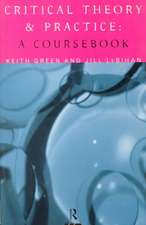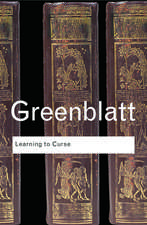Sharing Common Ground: A Space for Ethics
Autor Prof Robert Harveyen Limba Engleză Paperback – 14 iun 2017
| Toate formatele și edițiile | Preț | Express |
|---|---|---|
| Paperback (1) | 193.18 lei 6-8 săpt. | |
| Bloomsbury Publishing – 14 iun 2017 | 193.18 lei 6-8 săpt. | |
| Hardback (1) | 832.34 lei 6-8 săpt. | |
| Bloomsbury Publishing – 14 iun 2017 | 832.34 lei 6-8 săpt. |
Preț: 193.18 lei
Preț vechi: 223.68 lei
-14% Nou
Puncte Express: 290
Preț estimativ în valută:
36.96€ • 38.70$ • 30.59£
36.96€ • 38.70$ • 30.59£
Carte tipărită la comandă
Livrare economică 05-19 aprilie
Preluare comenzi: 021 569.72.76
Specificații
ISBN-13: 9781501329593
ISBN-10: 1501329596
Pagini: 328
Ilustrații: 26 b/w illustrations
Dimensiuni: 140 x 216 x 26 mm
Greutate: 0.43 kg
Editura: Bloomsbury Publishing
Colecția Bloomsbury Academic
Locul publicării:New York, United States
ISBN-10: 1501329596
Pagini: 328
Ilustrații: 26 b/w illustrations
Dimensiuni: 140 x 216 x 26 mm
Greutate: 0.43 kg
Editura: Bloomsbury Publishing
Colecția Bloomsbury Academic
Locul publicării:New York, United States
Caracteristici
Engages with a host of key topics, including literary theory, Holocaust Studies, ethics and art, and literature and philosophy
Notă biografică
Robert Harvey is Distinguished Professor in the Department of Cultural Studies and Comparative Literature at Stony Brook University, USA. He is the author of Witnessness: Beckett, Dante, Levi and the Foundations of Responsibility (2010).
Cuprins
Preface1. Construction Sites2. Empathy and the Kantian Sublime3. Of Spaces Otherwise4. Zones of Indistinction5. Foucault's Transgression6. The Cleave Informs: René Char and the Hope of HeresyBibliographyIndex
Recenzii
In a number of ways and contexts, thus, Sharing Common Ground manages to reveal how the urge to think and imagine in common when faced with existing places and their challenges is essential culturally, artistically, theoretically, ethically and existentially for human beings if they are to recreate these places as spaces that they can inhabit together. Equally, Harvey lays bare that the sharing of common ground is a joint endeavor linking crucial figures within literature, art, theory, philosophy and ethics together . Harvey's ongoing discussion throughout the book also repeatedly makes decisive and well-considered contributions to the translation and understanding of French theory and literature. In particular, it makes substantial offerings to the rendition of a number of crucial and at times somewhat quite enigmatic French terms and concepts in the English language . Sharing Common Ground shows considerable erudition; and Harvey's scholarship is meticulous and detailed . By contextualizing the text and authors discussed, digging out a number of whole arrays of hitherto overlooked connections and establishing a number of family resemblances, he manages to cover a lot of (common) ground and to make a number of very important points. Throughout, reading Sharing Common Ground is a most rewarding, enlivening and enlightening experience. In this manner, the monograph also succeeds in making it graphic that (even) reading and writing can be (particularly) exhilarating experiences, despite the fact and due to the fact that we are here (in a pre-eminent sense) strangers when we meet.
In the context of global capitalism and rising nationalisms, space is clearly a major issue. This is, in my view, the broader context from which Robert Harvey's book Sharing Common Ground: A Space for Ethics draws its relevance and, more importantly, its urgency . Looking at 'spaces otherwise' such as concentration camps, slums, and cemeteries, the book examines their ethical potentialities and offers a crucial addition to the emerging field of heterotopology. It argues that even though these spaces cleave us, leaving us with a sense of shock and terror in face of the unimaginable, they also create a sense of belonging that is ultimately a fertile ground for empathic experiences. The book is well documented and extremely comprehensive. It would be impossible to provide a summary, for it demonstrates a mastery and sure knowledge of a constellation of concepts taken from a wide range of figures including Giorgio Agamben, Georges Didi-Huberman, Marguerite Duras, and Immanuel Kant, among many others. [T]he reader will certainly be dazzled by this book.
"Harvey (cultural studies and comparative literature, Stony Brook Univ.) provides complex readings and difficult analyses of poets', novelists', and philosophers' writings ... This erudite, scholarly book bears on current struggles with xenophobic reactions to difference. Summing Up: Recommended."
With extraordinary philological precision and philosophical acumen, Robert Harvey triangulates Marguerite Duras, Michel Foucault and René Char, the three major surveyors of modern and contemporary zones of exclusion. The intermediary space of the urban Zone, so often sung by poets and novelists after Apollinaire and Céline, becomes a watershed dividing all subsequent economical, political and ethical shares. Sharing Common Ground makes us see the abyssal and foundational hiatus of ethics. Harvey reshapes today's ethics as a "herethics," both a salutary clearing and a paradoxical cleaving.
In his deep engagement with 20th-century history, philosophy and ethics, Harvey takes literature utterly seriously. Imaginative and painstaking, Sharing Common Ground calls on critical thinking to catch up with literature's weird insights, with the counterintuitive possibilities-the 'spaces otherwise'-that literature offers to thought. A most original, absorbing book.
In the context of global capitalism and rising nationalisms, space is clearly a major issue. This is, in my view, the broader context from which Robert Harvey's book Sharing Common Ground: A Space for Ethics draws its relevance and, more importantly, its urgency . Looking at 'spaces otherwise' such as concentration camps, slums, and cemeteries, the book examines their ethical potentialities and offers a crucial addition to the emerging field of heterotopology. It argues that even though these spaces cleave us, leaving us with a sense of shock and terror in face of the unimaginable, they also create a sense of belonging that is ultimately a fertile ground for empathic experiences. The book is well documented and extremely comprehensive. It would be impossible to provide a summary, for it demonstrates a mastery and sure knowledge of a constellation of concepts taken from a wide range of figures including Giorgio Agamben, Georges Didi-Huberman, Marguerite Duras, and Immanuel Kant, among many others. [T]he reader will certainly be dazzled by this book.
"Harvey (cultural studies and comparative literature, Stony Brook Univ.) provides complex readings and difficult analyses of poets', novelists', and philosophers' writings ... This erudite, scholarly book bears on current struggles with xenophobic reactions to difference. Summing Up: Recommended."
With extraordinary philological precision and philosophical acumen, Robert Harvey triangulates Marguerite Duras, Michel Foucault and René Char, the three major surveyors of modern and contemporary zones of exclusion. The intermediary space of the urban Zone, so often sung by poets and novelists after Apollinaire and Céline, becomes a watershed dividing all subsequent economical, political and ethical shares. Sharing Common Ground makes us see the abyssal and foundational hiatus of ethics. Harvey reshapes today's ethics as a "herethics," both a salutary clearing and a paradoxical cleaving.
In his deep engagement with 20th-century history, philosophy and ethics, Harvey takes literature utterly seriously. Imaginative and painstaking, Sharing Common Ground calls on critical thinking to catch up with literature's weird insights, with the counterintuitive possibilities-the 'spaces otherwise'-that literature offers to thought. A most original, absorbing book.
















